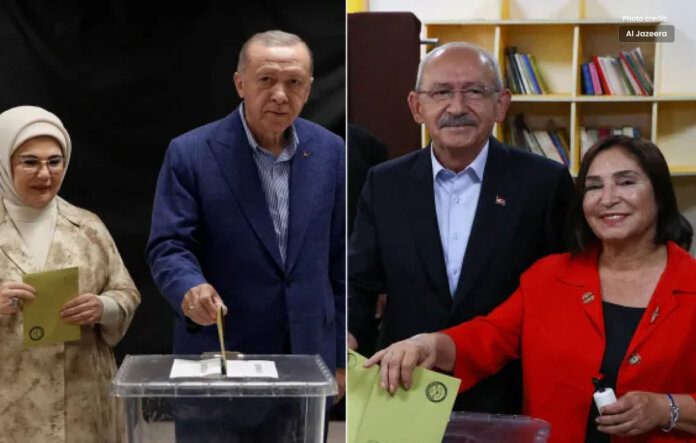Turkey’s presidential runoff voting begins, potential for Erdogan’s.
Erdogan, 69, defied survey and defeated Kemal Kilicdaroglu in the first round on May 14 with comfortable lead of about five points. However, in a contest that had significant ramification for both domestic geopolitic in Turkey and international geopolitic. He came barely short of the required 50% to avoid runoff.
The seasoned campaigner who claims vote for him vote for stability was encouraged by his unexpectedly excellent performance in the midst of severe cost of living crisis and victory in parliamentary election for coalition of his conservative Islamist-rooted AK Party (AKP), the nationalist MHP, and others.
The outcome of the election will determine not only who will rule the 85 million-person NATO member nation of Turkey, but also how it will be governed. The direction of its economy after its currency fell to a tenth of its value against the dollar in a decade. The nature of its foreign policy after Turkiye irked the West by forging ties with Russia and Gulf states.
The voting period began at 8 a.m. (0500 GMT) and ends at 5 p.m. (1400 GMT). By early evening, it should be evident how things turned out.
Kilicdaroglu, 74, is the leader of the Republican People’s Party (CHP), which Mustafa Kemal Ataturk founded. The nominee of a coalition of six opposition parties. After the shock of losing to Erdogan in the first round, his camp has had trouble gathering steam.
The first election revealed greater than anticipated support for nationalism, a strong force in Turkish politics that has been toughened by years of warfare with Kurdish militants, failed coup attempt in 2016. The influx of millions of Syrian refugees since war broke out there.
Interior Ministry:
However, to data from the Interior Ministry, Turkey is the country that hosts the most refugees in the world, with total of 5 million migrants, 3.3 million of them are Syrians.
Hardline nationalist Sinan Ogan, the third-place finisher in the presidential race, cited the need for a “non-stop struggle (against) terrorism” as the reason for his support of Erdogan. Ogan was referring to pro-Kurdish organizations. With 5.17% of the vote, he won.
Following Kilicdaroglu’s declaration that he would deport immigrants, Umit Ozdag. The leader of the anti-immigrant Victory Party (ZP), announced a pact pledging ZP’s support for Kilicdaroglu. In the parliamentary election this month, the ZP received 2.2% of the vote.
Following the distribution of undecided voters, a carefully monitored poll by Konda for the runoff showed support for Erdogan at 52.7% and Kilicdaroglu at 47.3%. The poll was conducted on May 20 and 21, before Ogan and Ozdag made their endorsements public.
The voting behavior of Turkey’s Kurds, who make up around 5% of the population, is also crucial.
Kilicdaroglu received support from the pro-Kurdish Peoples’ Democratic Party (HDP) party in the first round, but after he veered to the right to seek nationalist votes, it chose not to specifically mention him and urged voters to reject Erdogan’s “one-man regime” in the runoff.




